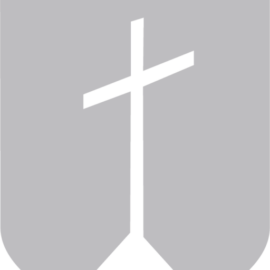The song has a pretty cool design to it. Each of the 3 guys rap for 16 lines. So each only needs one 16 to brag on King Jesus. But the obvious play on words is that “one sixteen” is also referring to Romans 1:16 which says “For I am not ashamed of the gospel for it is the power of God for salvation to everyone who believes…” Most everyone who has listened to the song had figured that out.
But I want to comment on one particular part in the song. In Trip Lee’s verse (at the 48 second mark in the youtube video linked above) he says this “I aint got no white collar; he made me priest though.”
I think that many young people today are not sure what Trip means in saying that. As a pastor of a Southern Baptist church, on two separate occasions I have had some college students ask me what he means. One thought Trip Lee was referring to pastors, and the other was unsure what it meant.
So, I would like to clarify what Trip Lee means in the song when he says that God made him a priest even though he does not have a white collar. (Let me be very clear- I have never spoken with Trip Lee about this, but I am fairly positive I know what he is saying. And let me also clarify that I am not implying that I know what he is saying because I am so clever, but rather because “the priesthood of the believer” is such a key piece of doctrine.)
What this means:
A priest and a pastor are not the same thing. Trip Lee is not at all a Catholic priest. And he is not, in that statement, referring to himself as a pastor.
Evangelical Christians believe in the Priesthood of the believer. Anyone who is a born-again believer in Jesus is a priest.
Webster’s dictionary defines it this way:
“a doctrine of the Protestant Christian Church: every individual has direct access to God without ecclesiastical mediation and each individual shares the responsibility of ministering to the other members of the community of believers”
Wayne Grudem explains it like this:
“We are also priests, because Peter calls us “a royal priesthood” (1 Peter 2:9). He invites us to be built into a spiritual temple and “to be a holy priesthood” as well as “to offer spiritual sacrifices acceptable to God through Jesus Christ” (1 Peter 2:5). The author of Hebrews also views us as priests who are able to enter into the holy of holies (Heb. 10:19,22) and able to “continually offer up a sacrifice of praise to God, that is, the fruit of lips that acknowledge his name” (Heb. 13:15). He also tells us that our good works are sacrifices pleasing to God: “Do not neglect to do good and to share what you have, for such sacrifices are pleasing to God” (Heb. 13:16). Paul also has a priestly role in mind for us when he writes, “I appeal to you therefore, brethren, by the mercies of God, to present your bodies as a living sacrifice, holy and acceptable to God, which is your spiritual worship” (Rom. 12:1).”
What Trip Lee is saying in that line is that God has saved him. He now knows God. He now has a relationship with God. He indeed does not have a white collar. But indeed is a priest. God made him a priest. God made Trip Lee, and every other follower of Jesus, a priest when He saved them and forgave them of their sins.
So, Trip Lee is not referring to a special position or title in a church somewhere. He is referring to the saving work of God.
When God calls someone to Himself, He makes them a priest.
Praise God for that!


Leave a Reply